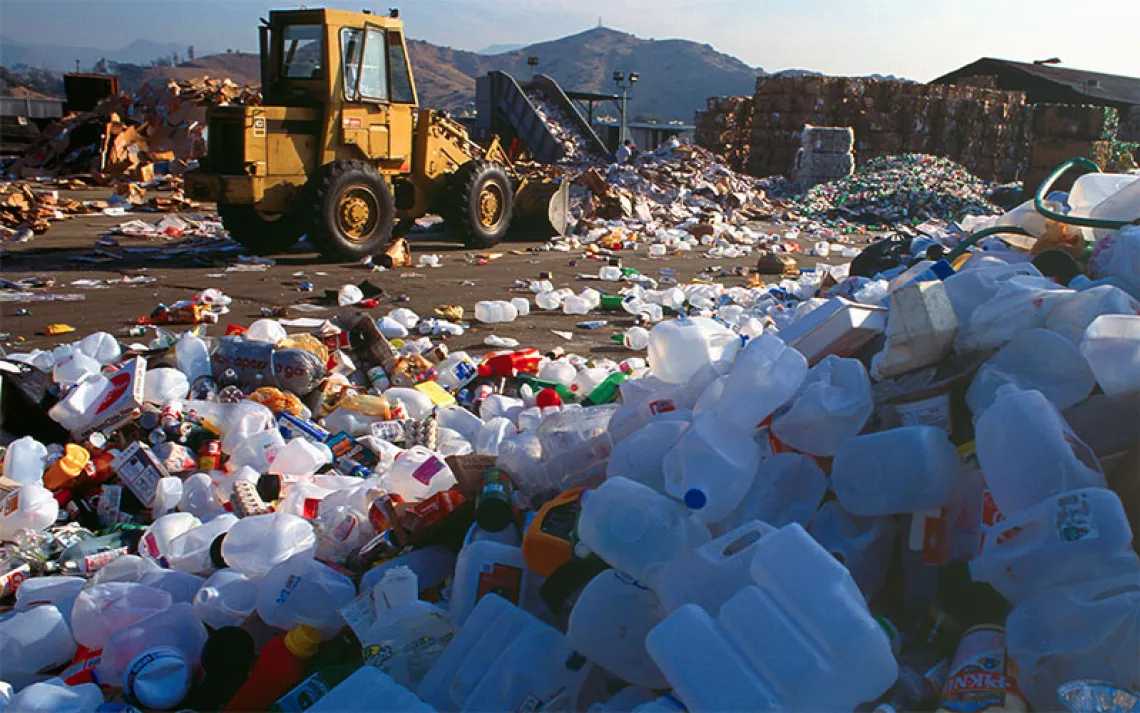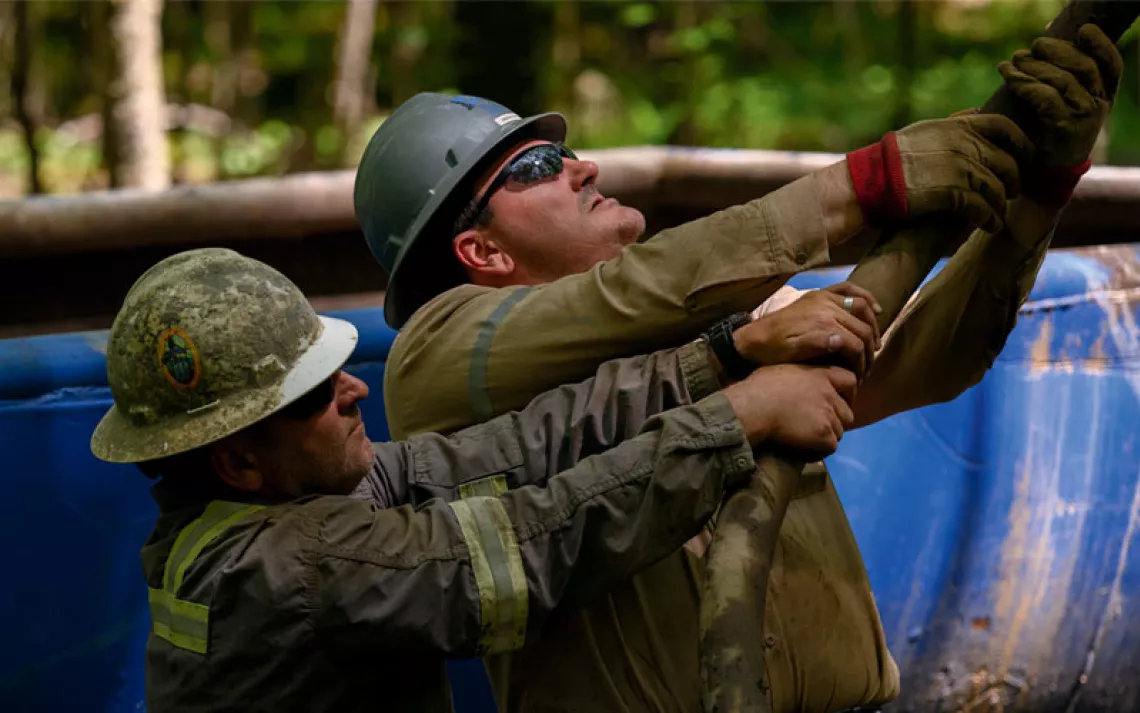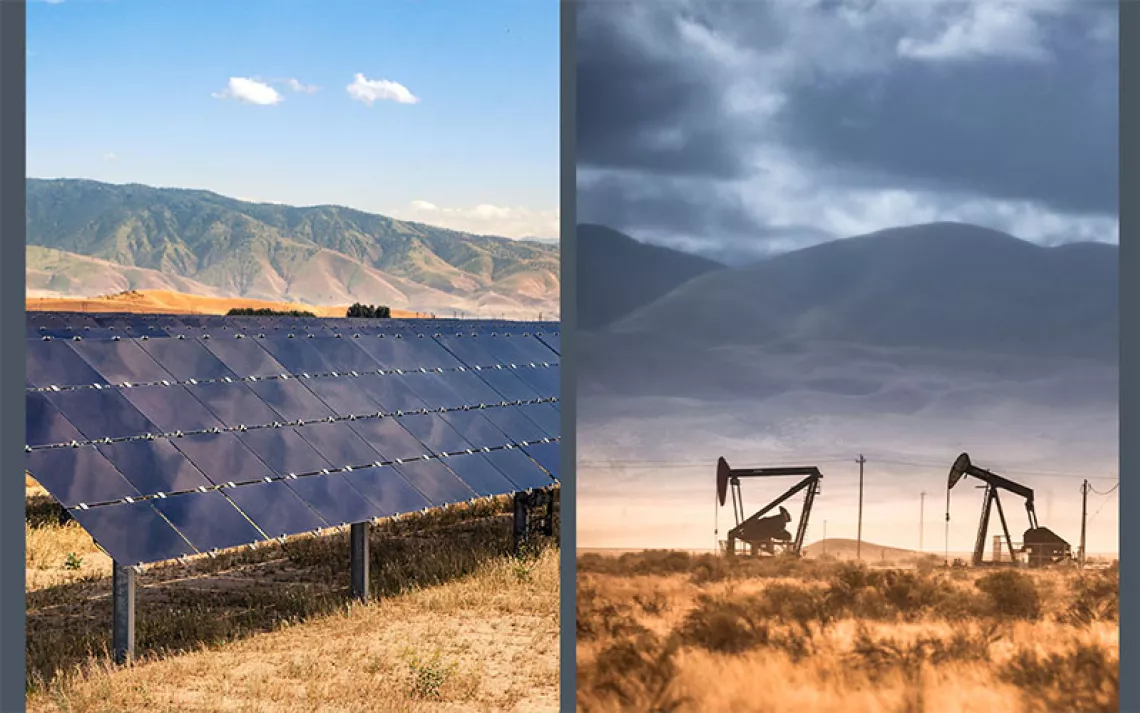We Eat the Machine, and the Machine Eats Us

Deepwater Horizon, the new feature film about the 2010 BP oil well blowout in the Gulf of Mexico, is full of terrifying scenes that will leave audiences with racing hearts and sweaty palms: Torrents of mud and oil smash men’s bodies against steel; flames burn people alive; explosions send hurricane-force storms of glass flying into faces. But perhaps the most frightening scene is a quiet one—a monologue delivered with the cold-hearted calm of a shark on the prowl.
Early in the film, the chief electronics technician on the giant floating oil rig, Mike Williams—played perfectly by Mark Wahlberg—warns that the deep-sea well drilling is moving ahead without proper safety protocols, and that the rig (owned by a company called Transocean but leased by the petroleum giant BP) is beset by scores of technical problems. Williams’s caution pisses off the BP execs on board, who are already exasperated by the fact that the well completion is 43 days behind schedule, costing the company tens of millions of dollars. One of those BP execs, Donald Vidrine (John Malkovich), pays a personal visit to Williams to explain, in no uncertain terms, who’s boss.
In the privacy of Williams’s shop, Vidrine delivers a soliloquy about how exactly “the machine” operates—“the machine” being the multinational corporation BP and, by obvious extension, the oil and gas industry as a whole. Vidrine makes clear to Williams that he is just one small cog in that giant machine. And, more to the point, that the machine will continue to grind onward regardless of anything Williams might think or do. “We all work very hard to ensure that those moving parts are functioning as a means to a very profitable end for all of us,” Vidrine drawls.
This is cynicism at its dankest—cloaked in hollow wisdom and a shallow worldliness—and Malkovich nails it. His Vidrine has a shaved head, a gray goatee, and a slithering, reptilian presence. Imagine Voldemort with a Cajun accent. As Vidrine cooly schools Williams, Malkovich savors each syllable, his character relishing the chance to explain to this subordinate how the cold, hard world works. No matter what, the machine will keep churning. Vidrine’s vision of the implacable machine is pure malevolence—a vision that ultimately explodes in a fiery maelstrom.
With Deepwater Horizon, director Peter Berg (director of Lone Survivor and producer of Battleship) has taken on the tough task of dramatizing and personalizing a rather complicated—one could even say arcane—industrial accident. For most Americans, the 2010 blowout of the Macondo oil well is probably best remembered for its fallout: the video livestream of the wellhead that gushed for 87 days; the oil-soaked birds on the bayou; the Louisiana shrimpers and oystermen out of work as state and federal workers tried in vain to skim crude off the ocean and beaches. The destruction of the Deepwater Horizon, tragic as it was, became little more than prologue to the larger tragedy.
Berg pulls it all off with a combination of tension-filled storytelling, stealthy education about the mechanics of offshore oil drilling, and intimate, even loving, portraits of the men (and in this case at least one woman) who keep Americans’ gas tanks filled.
In the first half of the film leading up to the volcanic climax, Berg skillfully builds the suspense to the disaster we know is coming. Bad omens are everywhere. A character’s car engine fails to start, a fire alarm goes off unnecessarily, a bird wallops a helicopter midflight. Even the best systems, we see, sometimes go awry.
At the same time, the director patiently instructs in the details of deepwater, offshore oil drilling. In one of the opening scenes, we get a sprightly overview of the mechanics—as well as the hazards—of oil drilling as Mike Williams’s daughter practices a school presentation about her dad’s line of work using a Coke can, a metal tube, and some honey. When the rig’s operations get too complex to illustrate via dialogue, the filmmakers resort to explanatory white text on the screen. It might not be the most elegant narrative device, but given the thousands of moving pieces at work, it’s probably unavoidable. For the most part, Berg keeps the jargon at bay.
Then there’s the well explosion itself and its awful aftermath—the CGI-enhanced spectacle that most moviegoers will likely come for, and take home with them. The disaster speeds along in a cascade of harrowing details. The force of the explosion knocks men around like ping-pong balls while shrapnel shatters bodies. As the fire intensifies, the entire vessel becomes an oven, too hot to touch. At first the rig workers attempt to staunch the blowout. Then they scramble for the lifeboats. It’s like the final scenes of Titanic—only with drilling mud and crude oil in place of torrents of water. And, of course, the entire crew of the Deepwater Horizon is the equivalent of those poor bastards in steerage—blue-collar dudes who are considered dispensable.
The rank and file workers of the Deepwater Horizon are the heart of the film, which, if anything, is a paean to the oil-field working class. Any other themes are touched on only briefly. Deepwater Horizon isn’t, for example, any kind of eco-allegory. There are a scant two environmental moments in the film. One comes when a petroleum-soaked pelican accidentally flies onto the bridge of a nearby ship and careens in panic around the room until it kills itself. The other comes just moments before the fatal well blowout, as Malkovich’s Vidrine is discussing a wine he recently enjoyed. “Gaia,” he says with a pedant’s sly sadism. “It’s called Gaia.” The next moment, Gaia makes herself felt, and all hell breaks loose.
Nor is this a message movie. “You money-hungry bastards,” Wahlberg’s Mike Williams growls as the disaster unfolds, and the finger-pointing is left at that.
Aside from Williams, the other hero here is Jimmy Harwell—“Mr. Jimmy” everyone calls him—the rig’s installation manager, or top boss. Played by a mustachioed Kurt Russell (the effect is like a petroleum-patch Mike Ditka), Mr. Jimmy and Williams stay behind to gather the survivors and try to stop the fire even as the BP execs flee for their lives. These two men, along with their crew, represent everything that is best about the fraternity of roughnecks and roustabouts. They are hard-working family men who demonstrate at every moment on the job an incredible amount of grit as they cope with the daily grime and greed of their profession—and who, on the Deepwater Horizon, were called to acts of uncommon courage.
Vidrine’s soliloquy was right: within a giant corporation, such men are little more than cogs. Most of time, their labors help to run the machine that, let’s face it, keeps all of us fed in an industrial society. Other times, such men are fed to the machine. That’s what happened on April 20, 2010, when 11 men were sacrificed to keep the machine going.
 The Magazine of The Sierra Club
The Magazine of The Sierra Club



